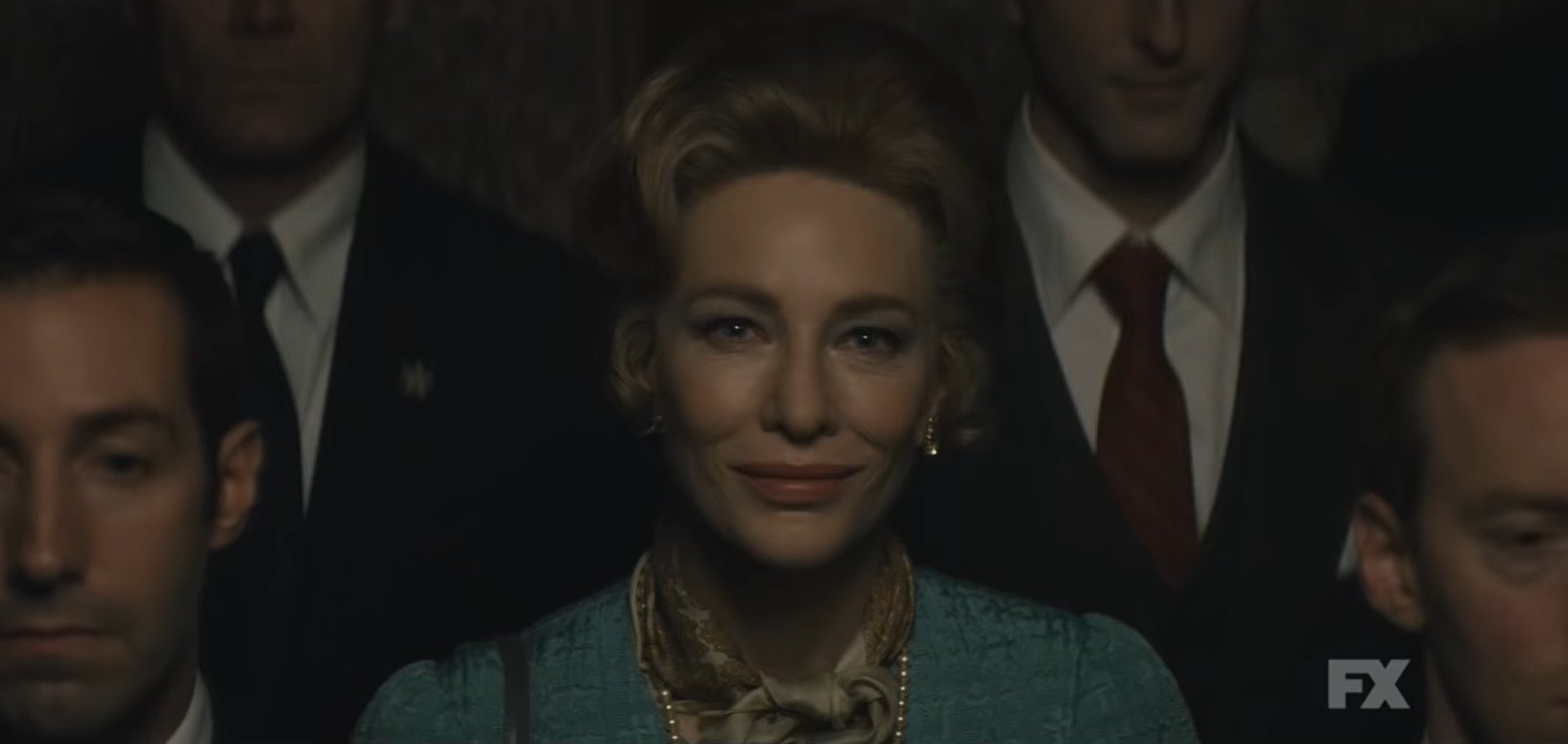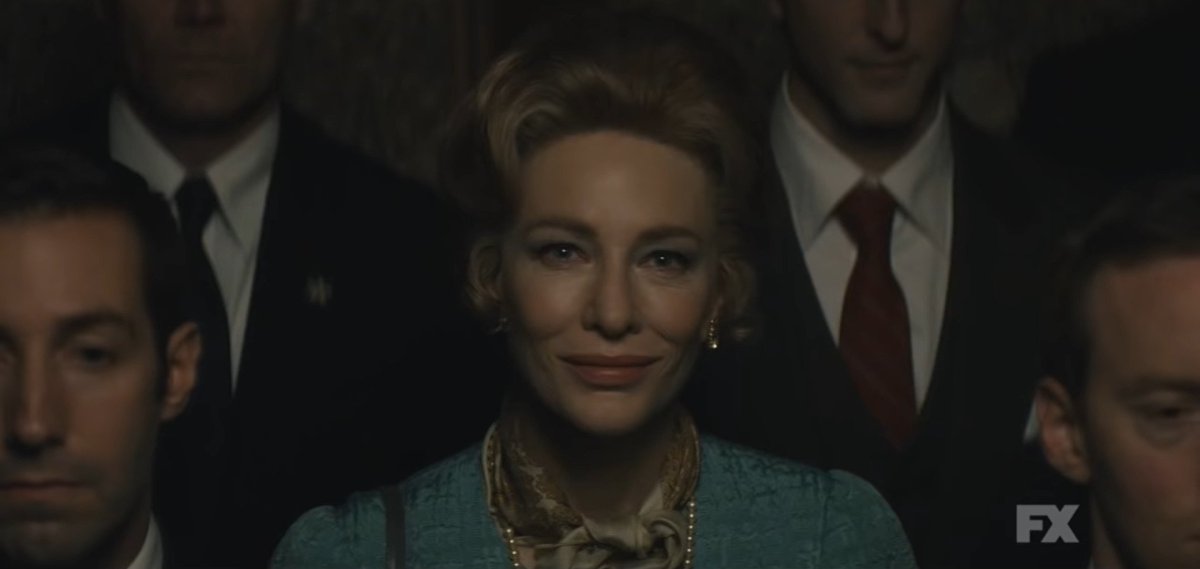Mrs. America Takes Us on a Complex Journey of Power and Compromise


When I heard the concept for FX’s New limited series Mrs. America, I was not sold. Why the heck would I want to watch anything about Phyllis Schlafly, the woman who became a national icon crusading against everything I personally believe? Sure, the series wasn’t just her story; it told the entire arc of the push for and ultimate defeat of the equal rights amendment, but … ugh. Phyllis Schlafly???
Still, I gave it a chance because advance reviews were glowing, the cast is amazing, and the show is written and directed almost entirely by women, telling a story about many diverse women. And I’m so glad I did, because the series is absolutely brilliant. It tells the story of the Equal Rights Amendment from multiple perspectives, all of them depicted with both nuance and a critical eye, and the presence of women behind the scenes shows.
The first three episodes of the nine-episode series, which started streaming yesterday exclusively on FX on Hulu (which is just a fancy way of saying “Hulu”), were so good that I couldn’t stop watching. Each episode of the series focuses on a different woman in the competing movements of women’s liberation—and the women, organized by Schlafly, who saw “liberation” as a threat. And each episode depicts these many women as complex and flawed, illuminating a moment in history.
The first episode is Schlafly’s, which would seem problematic, but to tell this story, it is essential to examine the viewpoint of the “villains”–women who were against the ERA, and what the thinking was for these women that stood against something that seemed so logical and beneficial for them. The series does this, interestingly, by showing how the sexism of the era affects Schlafly personally. “Phyllis” opens with Schlafly being paraded around in a bikini at a political fundraiser, and shows the ways that she, a well-educated and whip-smart woman, is ignored, objectified, and even exploited. And it led her down the worst possible path: instead of seeing what she experienced as something she should stop, she decided she would exploit it, and the fears of other women, for her own gain. By suggesting some empathy for Schlafly, it makes her own lack of empathy for other women all the more tragic.
This is not to say that it makes Schlafly a victim or glorifies her. She’s clearly on the wrong side of history. But the nuance of the series is important because how can we defeat any enemy if we do not understand them? By showing how Schlafly herself was thwarted in her ambitions to run for congress and have influence in nuclear policy, Mrs. America actually makes the case for the women’s movement, and also explains how Schlafly latched onto a cause where she could wield power and influence.
The shows that Schlafly saw opposing the ERA as a venue where she could have real influence, and where she could rule and control other women and thus get some power herself. Blanchett is, unsurprisingly, brilliant in the role of a woman who takes a completely wrong path. You see the real fear among her friends and the influence of misinformation, personality, and power. We see her start to lose whatever humanity she had in this fight, very pointedly, just from episode one, when Schlafly is shown at first as a kind family member who assures her sister-in-law, Eleanor (Jean Tripplehorn) that there’s nothing wrong with being 40 and single … and then uses that same status as an insult to Gloria Steinem.
The women on this show are acting from places of fear and frustration, some obviously more valid than others—the fear of divorce, or economic instability, or lack of choice. The series also places the saga in a greater context of history in terms of the looming threat of nuclear attack and the Vietnam war. And Mrs. America introduces many complex characters that I know will be explored more. Sarah Paulson’s character, Alice, is someone I can’t wait to see the series dig into in coming episodes, and see her move from a scared, sheltered homemaker who wants to keep her daughters from being drafted, to something more.
Phyllis’ story is only one piece of the puzzle. The second episode is “Gloria,” which paints an equally complex, but also more sympathetic, picture of Gloria Steinem, played perfectly by Rose Byrne, and her role in the women’s movement and push for abortion rights. But it’s the third episode, “Shirley,” that is by far the most relevant and powerful, as it digs into Shirley Chisolm’s (Uzo Aduba) run for president and the heartbreaking reality of politics, power, and privilege in the women’s and civil rights movement.
“Shirley” is the episode that really makes this series. (And it’s written and directed by two black women). It’s where we see the price of power, and it’s so eerily reminiscent of everything happening in the world right now. As we currently contend with the idea of accepting a flawed male candidate for president because the alternative is even worse, Shirley’s fight for recognition, her loss of support from those around her, and concession is particularly painful. In the same episode we see Schlafly give up even more of her soul, in order to accommodate racists, because she needs power from them, mirroring what Steinem and Co. do to Chisolm.
The feminist side of the movement, while having a moral high ground, isn’t spared a critical eye, and that’s just as important as closely examining the anti-feminist movement. White women’s place at the table in the 1972 presidential campaign of George McGovern comes at the expense of Shirley Chisolm’s principles and independence. The tradeoff is supposed to be abortion rights, but they lose that, too.
Mrs. America is a series about power and the thousands of small concessions that women make every day to get even a little bit of it. From letting a man get too handsy, to allowing racists into a movement, to forcing the first black woman to run for president to give up and give in, the series shows the awful, messy truth behind often sanitized moments in the history of the women’s movement.
Mrs. America is not a glorification of Phillys Schlafly, but rather an exploration of how she and all the women in the ERA era got there, and the things they lost along the way. It’s compelling, thought-provoking and brilliantly made and I can’t wait to see whose stories we explore in the next six episodes.
(image: FX)
Want more stories like this? Become a subscriber and support the site!
—The Mary Sue has a strict comment policy that forbids, but is not limited to, personal insults toward anyone, hate speech, and trolling.—
Have a tip we should know? [email protected]
